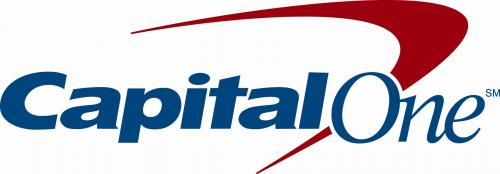 Top Class Actions
Top Class Actions
What Happened to that ‘Good Will Toward Men’ Thing? ‘Tis the season–and this thing called good will towards men apparently hasn’t caught on yet–in some parts. Case-in-point–Capital One. They’re facing a class action over allegations that they illegally obtain background checks on folks applying for jobs with the company. What’s in your wallet indeed!
The lawsuit was filed on behalf of Plaintiff Kevin Smith and seeks to represent a class of all Capital One employees and job applicants for the past three years.
Essentially, the lawsuit accuses Capital One of violating the Fair Credit Reporting Act (“the Act”) Act in a two ways. First, the lawsuit alleges that Capital One’s authorization form is flawed. The law imposes strict formatting requirements on companies who do background checks. The lawsuit alleges that by burying its background check authorization in a job application, including extraneous information, Capital One violated the law. On this claim, Capital One may be liable to all employees and prospective employees who signed Capital One’s standard job application.
Second, the lawsuit also alleges that Capital One failed to provide copies of the reports when it used them to take adverse employment actions, such as refusing to hire an applicant, refusing to promote an employee or terminating an employee. This practice also violates the Act, which requires companies to provide employees with copies of their background checks.
The lawsuit is potentially valuable to class members. Employees and prospective employees may be entitled to statutory damages of up to $1,000 for each violation. “Based on our understanding of Capital One’s practices, everyone who has applied or worked for Capital One in the past three years should be eligible to receive statutory damages if our lawsuit succeeds,” attorneys for the plaintiff(s) state.
Next up–Apple. All I have to say about this is Really? Here’s the skinny…
Cheap to the (Apple) Core? The uber cool icon of new technologies for the 21st century has been hit with an employment class action lawsuit. The suit alleges that Apple devised an illegal scheme of classifying at-home call center employees as independent contractors in order to avoid paying Apple’s share of payroll taxes and other business related expenses through the use of a Yellow Dog Contract.
According to the lawsuit, Apple “hires workers to answer calls from its customers in regard to billing questions and technical support” but has devised an unlawful scheme of classifying the employees as independent contractors in order to avoid paying for regular and overtime hours worked as well as the “the cost of the employer’s share of tax payments to the federal and state governments for income taxes, social security taxes, medicare insurance, unemployment insurance and payments for workers’ compensation insurance.” The complaint specifically alleges that in order to avoid the payment of these costs as required by law, the at home call center employees “are required by APPLE to each form a separate Virtual Services Corporation to act as a shell corporation as part of the scheme to insulate APPLE from APPLE’s liability for APPLE’s Business Related Expenses.” The class action lawsuit against Apple refers to these agreements between Apple and the employees as “Yellow Dog Contracts” that violate not only employment laws, but also fundamental public policy.
Top Settlements
A Fee-for-All at Walmart? Walmart has agreed to a $13.5 settlement of a securities class action this week. The lawsuit was brought by employee Jeremy Braden, and others, who alleged that the retail giant, together with Bank of America’s Merrill Lynch unit, passed along “unreasonably high fees and expenses” to its 2 million workers who had 401(k) plans. As with many 401(k) plans, Walmart’s contained a mixture of mutual funds representing investments in the bond and stock markets. The costs of managing those funds were passed along to employees.
According to a report in the AARP Bulletin the Walmart “settlement is a legal landmark because Walmart provides one of the largest 401(k) plans in the world and is the nation’s largest private employer, with more than $400 billion in annual sales.”
The timing is interesting in that the US Department of Labor is currently refining regulations around “fiduciary duty” and fee disclosure in 401(k) plans. And, the government is pressing for full disclosure of all fees paid to middlemen such as savings plan managers and wants stricter legal guidelines on how to provide the most prudent offerings at the lowest possible cost.
“I believe my account has experienced a loss in value, due to the reduced return on my investment in those plan investment options caused by the unreasonably high fees and expenses in those funds,” Braden stated in the lawsuit.
Under the terms of the settlement, Braden will collect $20,000. “Other employees covered by the class action suit will not receive payouts, but will benefit in the form of up to $9 million in reduced fees going forward. Lawyers for the plaintiffs will collect as much as $4 million,” AARP Bulletin reported.
Ok–That’s enough for this week. See you at the bar.

